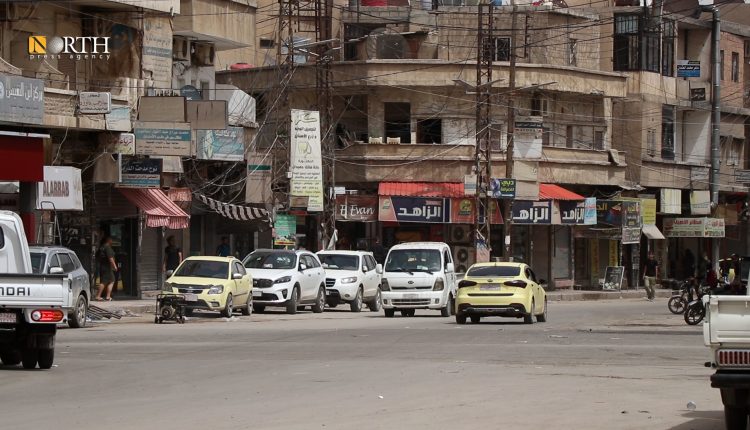By Samer Yassin
HASAKAH, Syria (North Press) – The proposal for decentralization, adopted by the political document of the “Kurdish Unity Conference,” sparked widespread debate in Syrian political circles.
Opinions were divided between those who saw this model as a step toward building a new Syria, and those who viewed it as a separatist project threatening the country’s unity.
The conference, held in Qamishli in northeastern Syria in late April, called for the adoption of a parliamentary system in Syria based on political pluralism, peaceful power transition, and separation of powers, relying on local councils operating within a decentralized framework.
The Syrian presidency considered the conference’s outcomes to be in conflict with an agreement previously made with the leadership of the Syrian Democratic Forces (SDF), while others regarded the demand for decentralization as a form of secession.
In January, the Commander in Chief of the SDF, Mazloum Abdi, stated that decentralization is the most suitable option for the current reality in Syria, emphasizing that it does not contradict the concept of the country’s territorial unity.
Failure of a centralized system
Farhan Dawood, an official in the Democratic Union Party (PYD), said the centralized system in Syria has failed to address crises due to power being concentrated solely in the hands of the president, which led to the marginalization of various societal components.
He told North Press, “We have called for the implementation of a parliamentary system” to ensure true representation of our people in a parliament that reflects Syria’s cultural diversity.
Dawood pointed out that the centralized system does not reflect the will of the people but instead marginalizes them. He affirmed that implementing a parliamentary system would enable all communities to participate in decision-making and safeguard their rights, while a decentralized system ensures protection for everyone.
He emphasized that Kurdish demands are part of broader Syrian demands, a democratic, pluralistic, and decentralized Syria, where all groups are represented in parliament to protect their rights.
Applying a decentralized system would eliminate internal conflicts and provide a foundation for peaceful coexistence among the country’s various components, Dawood added.
Legal necessity
For his part, Syrian legal expert Aref Salman believes the centralized system in Syria does not grant decision-making freedom, as it relies on returning to a central authority far removed from the needs of each group.
He told North Press that administrative decentralization is a legal necessity for Syria, as it allows regions the freedom to make decisions away from the center, adding that both the current and former regimes failed to implement decentralization.
He explained that the current system makes the president unaccountable, which contradicts the aspirations of the Syrian people.
He noted that decentralization is essential for Syria’s political and economic development, as it allows each region to manage its affairs according to its needs.
Salman stressed the importance of the separation of powers to prevent one branch from dominating the others, which could lead to state failure.
He said that when powers are separated and subject to judicial or legislative oversight, the state can achieve integration and harmony.
Not separation
Salman clarified that a decentralized system does not imply cutting off part of the state or political separation; rather, it is a tool for the success of a comprehensive project that affects all aspects of life.
Decentralization has proven successful in many countries on social, political, and economic levels. It is the opposite of one-man rule, Salman pointed out.
He continued that political pluralism and decentralization do not contradict the components of Syrian society; they actually enhance freedom of action, the implementation of laws, and promote economic and legal development.
In a previous statement to North Press, Anas Joudeh, head of the National Building Movement, said, “Decentralization is a fundamental issue, and it is impossible to talk about Syria’s future without a certain level of decentralization—whether federal or otherwise. What matters is reaching consensus on a constitutionally decentralized structure; the labels are not what’s important.”
He added, “Any agreed-upon system should be implemented across all Syrian territory. A decentralized system must give local communities the space to develop and express their identities and economic concerns, while also ensuring local security through local police forces, as was the case in the agreement for Sheikh Maqsoud and Ashrafiyeh in Aleppo.”

